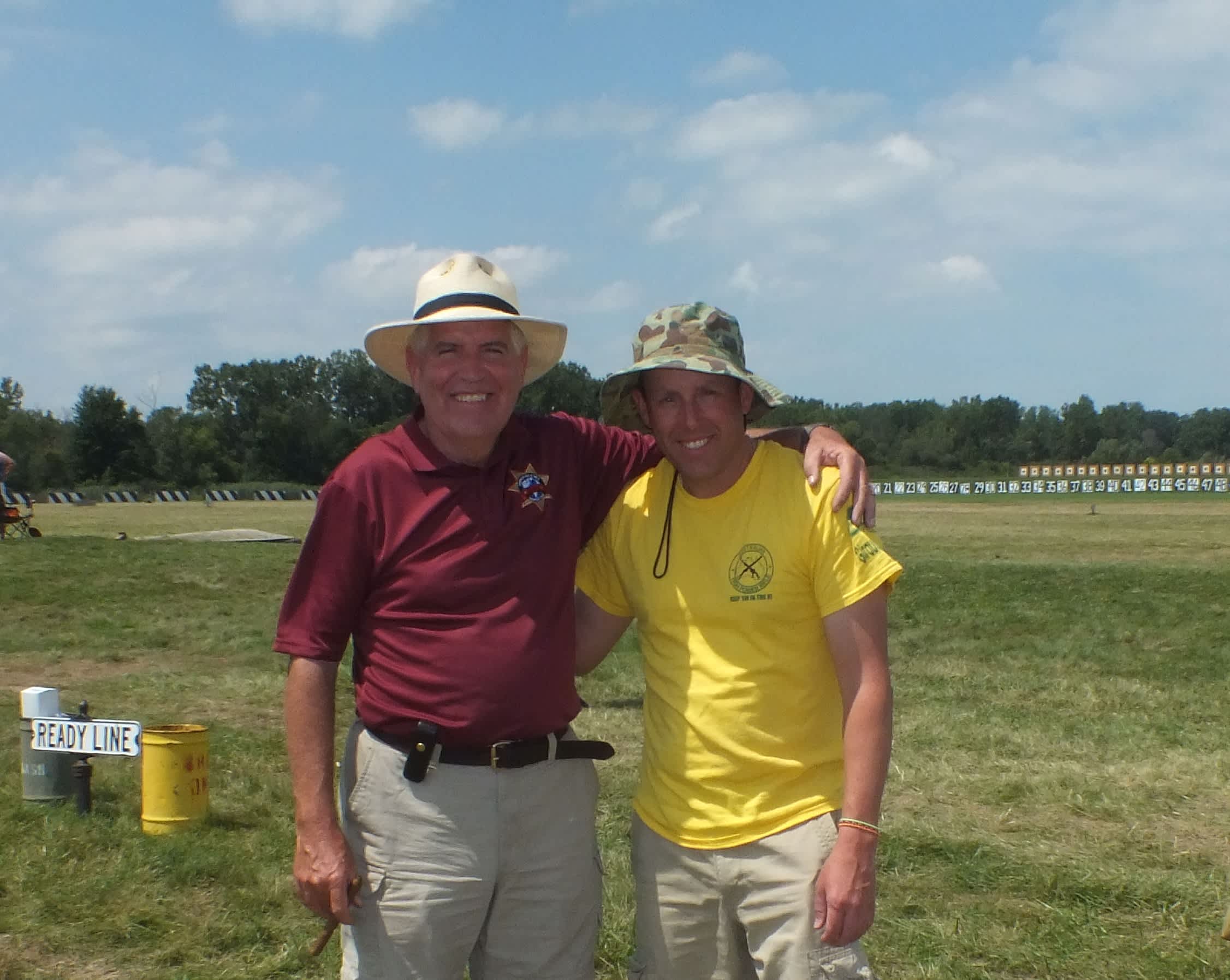Lady Luck is the Queen of Camp Perry
Lewis Creek Shooting School 08.07.13

I checked the scope one more time as the line official announced our time would begin when the targets appeared. The mirage in the spotting scope was a straight boil, refracting the light through heat waves and indicating that the wind would have little effect on the flight of my bullet as it traveled to the target 300 yards downrange. I confirmed in my mind that I’d shoot the first five shots straight away and check the wind again after I loaded the second five-shot magazine. My first string of 10 shots had required me to hold into a right side wind about four inches. Now, for my second 10-shot string, it was worth nothing, and I was going to shoot the first five of those shots straight away.
The targets rose, and my shooting time began. I put the magazine into the magazine well and dropped the bolt, but things didn’t sound right. I looked at the loading port and saw my empty chamber indicator, a safety device that lets the line judges know rifles on the line are empty, was jammed in the port. I had forgotten to remove it. The next few seconds were a Chinese fire drill while I tried to get the gun running. It seemed like half the allotted time of 70 seconds was gone when I was finally able to shoot. I pounded in the first shots, panicked that I was almost out of time. There was no time to check the wind. Missing the wind could cost me a couple of points per shot but every shot I didn’t get off before the target went down cost 10 points. There were a lot of folks still shooting when I started shooting the second magazine, so I slowed down and shot good shots, finishing the last shot about two seconds before the targets fell out of sight.
I’ve shot almost every discipline in the shooting fraternity and I can assure you, there is none as exciting as Conventional High Power. True, I can do with a little less excitement than that, but it’s all part of the game and I love it.
David Waters, from New South Wales, Austraila, is one of the top rifle shooters in the world. Last year, he was fourth in the world at the World Palma Matches, a grueling competition that challenges shooters at 800 to 1,000 yards and only allows the standard Winchester .308 cartridge. Today, he was my relay mate. David and I were shooting the first day of the National Championships and the fact that I was shooting with him had already made my day.
David is Australian and comes to the U.S. every year to compete in our National Matches. He shoots the across-the-course competition every year and became the first non-American ever to earn the coveted Distinguished Rifleman Badge. David shoots the AR-15 rifle in Service Rifle Class, a class that requires the rifle to be externally identical to the standard-issue U.S. battle rifle.
In 2003, gun owners in Australia organized the Australian High Power Association after their army stopped sending teams to shoot the U.S. National Matches at Camp Perry, Ohio. By 2005 they had sufficient organization to send the first team to Camp Perry in the late ’90s. For the six shooters who came, it was a dream come true. David said, “Apart from the fact that we’d always wanted to come here because Camp Perry is without equal as a shooting venue, the organizational level of the matches, the social side of it, and seeing old faces and making new friends are the best parts.”
“I decided I would come as long as I could,” he continued. “Our ARs had been banned for about eight years and I wanted to shoot ARs again. I was loaned a service rifle and started shooting the Excellence in Competition Matches. I earned my Distinguished Badge in 2008.”
David’s mention of the AR ban reminded me of just what can happen to gun owners at the whim of politicians, and since that conversation, I’ve been thinking of just how blessed we are as Americans to still be able to shoot so many types of guns and to be able to compete in events like the National Championships. Our meeting was representative of just how diverse the competitors at the National Matches are.
After my 300-yard fiasco, I rolled out of prone position and laughed. David, my score keeper, was grinning and told me to look at the chalk board that showed my score. The score was marked and half way up so I could see it in the half mast position. I had a 99-4x, just one point off a perfect score. This time, luck was with me, but there are three more days of shooting before the National Championship is decided; there are plenty of opportunities for Lady Luck to change her mind. Next time, she might not be so kind.

